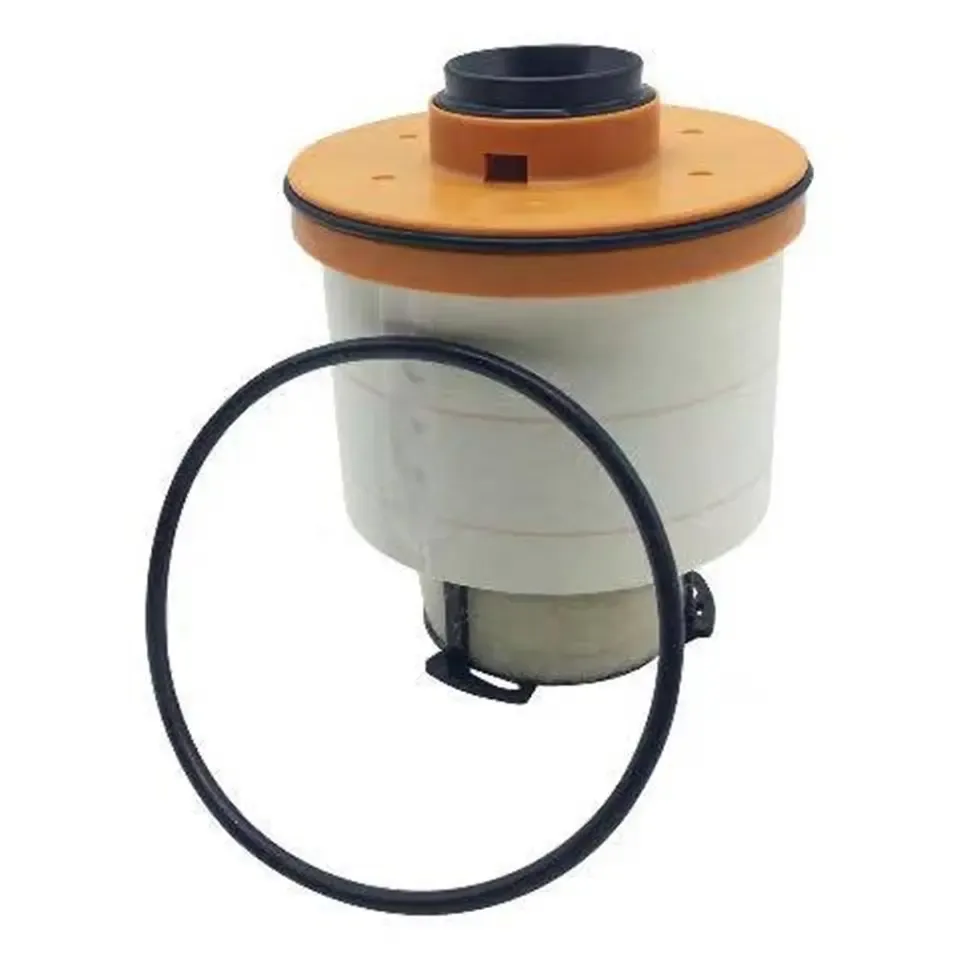Apr . 22, 2025 13:57 Back to list
Fuel Filter Types: A Comprehensive Guide to Cleaner Engine Performance
A Fuel Filter is an essential component of any vehicle or machinery that relies on an internal combustion engine. Its primary function is to remove contaminants from the fuel before it reaches the engine, ensuring smooth operation and preventing damage. With various fuel filter types available, it’s important to understand their differences and applications. This guide will explore the different types of fuel filters, the role of a fuel filter manufacturer, and the benefits of using a portable fuel filter for on-the-go filtration needs.

Why is a Fuel Filter Important?
The Fuel Filter plays a critical role in maintaining engine health and performance. Here’s why it’s indispensable:
Protects the Engine: By trapping dirt, rust, and other debris, the filter prevents these contaminants from entering the engine and causing damage.
Improves Fuel Efficiency: Clean fuel ensures optimal combustion, which can enhance fuel efficiency and reduce emissions.
Extends Engine Life: Regular use of a high-quality Fuel Filter can significantly extend the lifespan of your engine by reducing wear and tear.
Ensures Smooth Operation: A clogged or dirty filter can lead to engine sputtering, reduced power, and even stalling. Replacing it ensures consistent performance.
Common Fuel Filter Types
There are several fuel filter types, each designed for specific applications and fuel systems. Here are the most common ones:
Inline Fuel Filters: These are the most common type, installed in the fuel line between the tank and the engine. They are easy to replace and suitable for most vehicles.
Cartridge Fuel Filters: These consist of a replaceable filter element housed in a permanent casing. They are often used in diesel engines and heavy machinery.
Spin-On Fuel Filters: Similar to oil filters, these are self-contained units that screw onto the fuel system. They are popular in modern vehicles for their ease of replacement.
In-Tank Fuel Filters: Located inside the fuel tank, these filters are commonly found in newer vehicles. They are designed to last longer but can be more challenging to replace.
Portable Fuel Filters: These are standalone units used for filtering fuel before it enters a tank or engine. They are ideal for off-road vehicles, boats, and emergency situations.
Choosing the Right Fuel Filter Manufacturer
Selecting a reliable fuel filter manufacturer is crucial to ensure you get a high-quality product that meets your needs. Here’s what to look for:
Reputation: Choose a manufacturer with a strong track record and positive customer reviews.
Certifications: Ensure the manufacturer adheres to industry standards and holds relevant certifications.
Product Range: A good manufacturer offers a variety of fuel filter types to suit different applications.
Durability: Look for filters made from high-quality materials that can withstand harsh conditions.
Customer Support: A reputable manufacturer provides excellent customer service and technical support.
Benefits of a Portable Fuel Filter
A portable fuel filter is a versatile tool for anyone who needs to filter fuel on the go. Here’s why it’s a valuable addition to your toolkit:
On-the-Go Filtration: Perfect for remote locations or emergencies where clean fuel is not readily available.
Versatility: Can be used for cars, boats, generators, and other equipment.
Prevents Contamination: Ensures that only clean fuel enters your tank or engine, reducing the risk of damage.
Easy to Use: Most portable fuel filters are lightweight and simple to operate, making them ideal for quick filtration tasks.
Applications of Fuel Filters
Fuel filters are used in a wide range of applications, including:
Automotive: Cars, trucks, and motorcycles rely on fuel filters to keep their engines running smoothly.
Marine: Boats and other watercraft use specialized fuel filters to handle the unique challenges of marine environments.
Industrial: Heavy machinery and generators require robust fuel filters to ensure reliable operation.
Aviation: Aircraft use high-performance fuel filters to maintain safety and efficiency.
Agriculture: Farming equipment, such as tractors and harvesters, benefits from clean fuel to maximize productivity.
Understanding the different fuel filter types and their applications is key to maintaining your engine’s performance and longevity. Whether you’re looking for a standard inline filter or a versatile portable fuel filter, choosing a reliable fuel filter manufacturer ensures you get a product that meets your needs. Regular maintenance and timely replacement of your Fuel Filter will keep your engine running smoothly and efficiently, saving you time and money in the long run.
Fuel Filter FAQs
Q1: How often should I replace my fuel filter?
A: Most manufacturers recommend replacing the Fuel Filter every 20,000 to 40,000 miles, but this can vary depending on your vehicle and driving conditions.
Q2: What are the signs of a clogged fuel filter?
A: Common signs include engine sputtering, reduced power, difficulty starting, and poor fuel efficiency.
Q3: Can I use a portable fuel filter for my car?
A: Yes, a portable fuel filter can be used to filter fuel before it enters your car’s tank, especially in remote or emergency situations.
Q4: What’s the difference between inline and spin-on fuel filters?
A: Inline filters are installed in the fuel line, while spin-on filters are self-contained units that screw onto the fuel system. Both are effective but differ in design and installation.
Q5: How do I choose the right fuel filter for my vehicle?
A: Check your vehicle’s manual for specifications or consult a trusted fuel filter manufacturer to find a compatible filter.
-
ANTFIL Premium Oil Filters-Ultimate Protection for Your Engine
NewsJul.21,2025
-
ANTFIL Oil Filters-Superior Protection for Toyota&Nissan
NewsJul.21,2025
-
ANTFIL Fuel Filters-Durable Engine Filters
NewsJul.21,2025
-
ANTFIL Filters-Protection For Your Products
NewsJul.21,2025
-
ANTFIL Cabin Filter-Clean Air for Your Drive
NewsJul.21,2025
-
ANTFIL Air Filters-Pure Air Solutions for Every Space
NewsJul.21,2025


